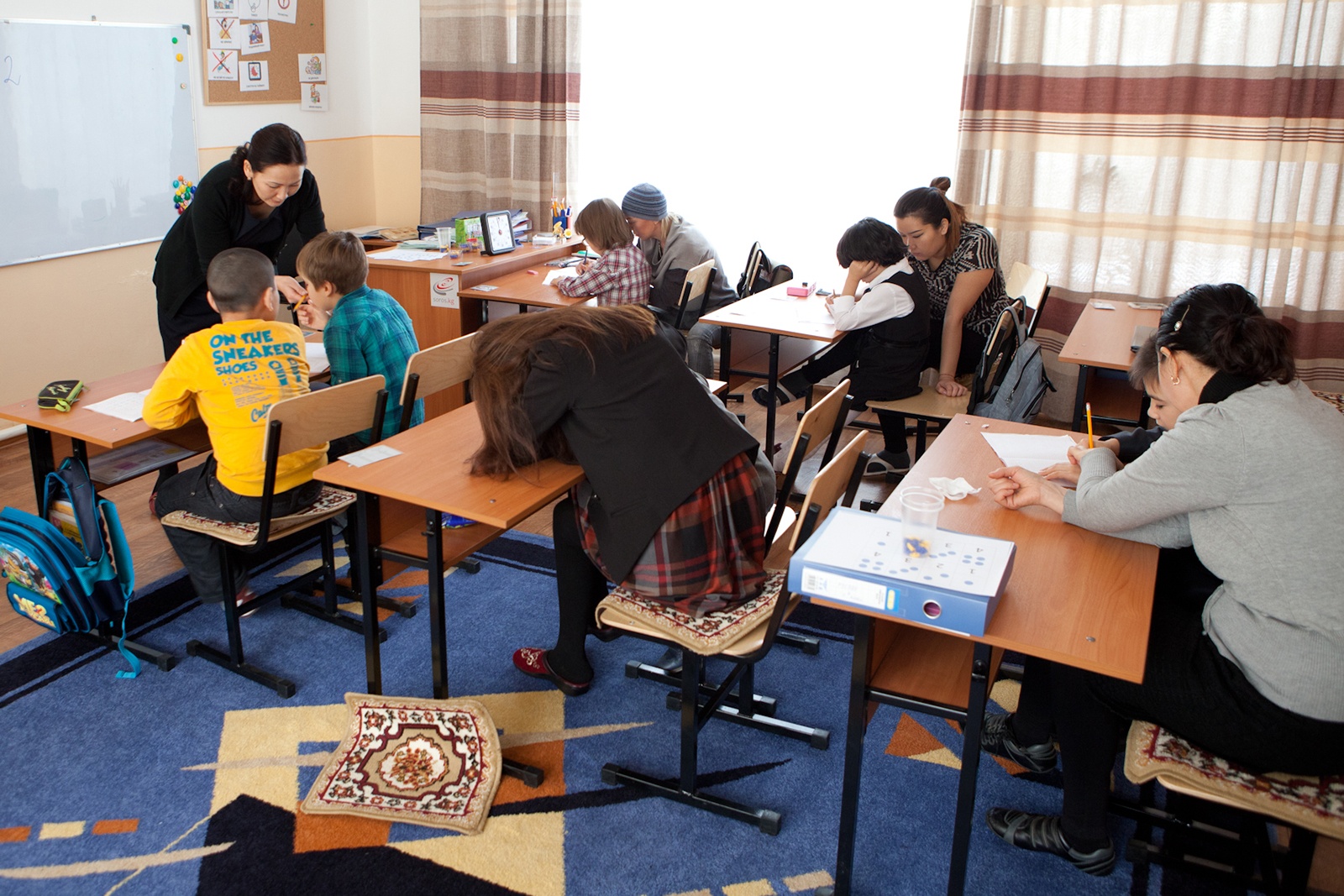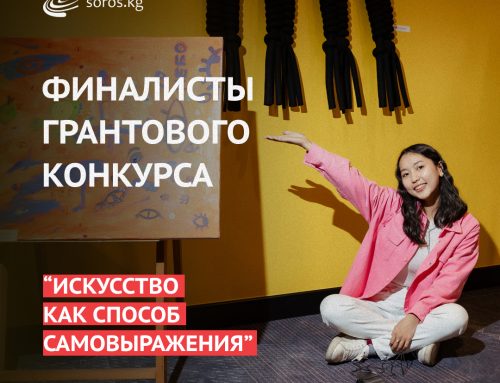When her youngest son Arstan was diagnosed with a speech disorder at the age of three, Cholponai, a single mother of two, struggled to find the best way to help him. Doctors concluded that Arstan needed to be sent to a special kindergarten, but in Bishkek, Kyrgyzstan, where Cholponai and her family live, these schools are few and far between.
After Arstan was unable to find placement in a special school, he continued to struggle communicating with other kids, had difficulty eating at his local preschool, and could not be left unattended because of the risk that he might run away.
It wasn’t until April 2012 that Cholponai learned about a public association called Hand in Hand from a television program. Anara Asanalieva, a staff member and mother of a child with autism, talked on the program about the center’s work supporting children like hers and about the progress her son had made. Cholponai wondered if Hand in Hand might be able to help Arstan too.
Eventually, she brought him to the center, where specialists began to work with Arstan using intensive Applied Behavior Analysis (ABA) therapy, a unique approach that had only just come to Kyrgyzstan. Not long after starting classes at the center, Arstan pronounced his first words.
Today, Arstan is eight years old. After more than three years at the center, he is now enrolled in the general education program at a private school. But Arstan’s success story belies the experiences of many other children with autism in Kyrgyzstan, who so often are not only denied the right to education but also unable to access adequate medical care.
The lack of specialists in child psychiatry is a key problem, as is the lack of qualified speech therapists and psychologists. Because the diagnosis of autism in Kyrgyzstan can only be given by child psychiatrists, most children with autism get diagnosed at six or seven years of age—when it’s too late to receive the most effective care. Studies have shown that intensive behavioral intervention for children with autism under the age of three dramatically improves learning, communication, and social skills.
Even when properly diagnosed, stigma and lack of information about the population remain. Children with autism, for example, may still be rejected from schools if they are seen as “unteachable” due to behavioral or communication issues.
But thanks in part to the efforts of Hand in Hand, the tide is starting to turn. Their early initiatives included trainings for Ministry of Health staff across the country to help identify risk groups and better diagnose children with autism. Today, the association conducts workshops and creates support groups for parents and families, helping them to overcome stigma and advocate for the rights of their children.
Hand in Hand also collaborated with partners including Soros Foundation–Kyrgyzstan to design and implement the innovative program incorporating ABA therapy methods into their work. As part of this model, parents act as tutors and teach children together in groups. Over time, the children learn to read, write, and work on the computer; follow a schedule of classes; and attend school events. Studies have indicated that half of preschool-age children who receive 40 hours per week of ABA therapy can be successfully integrated into ordinary schools.
Of course, the efforts of one organization are not enough for a country of six million people. Zhyldyz Sadykova, the head of Hand in Hand, believes that state support is needed to expand the programs so they can be adapted at the national level. “Once the government sees results,” she says, “they’ll recognize the need for cooperation. There is already big demand in other regions.”
Indeed, the Ministry of Health recently invited Hand in Hand to contribute to a clinical protocol that will provide specialists the screening tools, diagnostic instruments, and effective interventions to best support people with autism and their families—and to reach them as early as possible.
Anara Asanalieva of Hand in Hand adds, “We believe that a shift has come, as society is starting to learn about the problems that people with autism experience. But the work is just beginning.”


